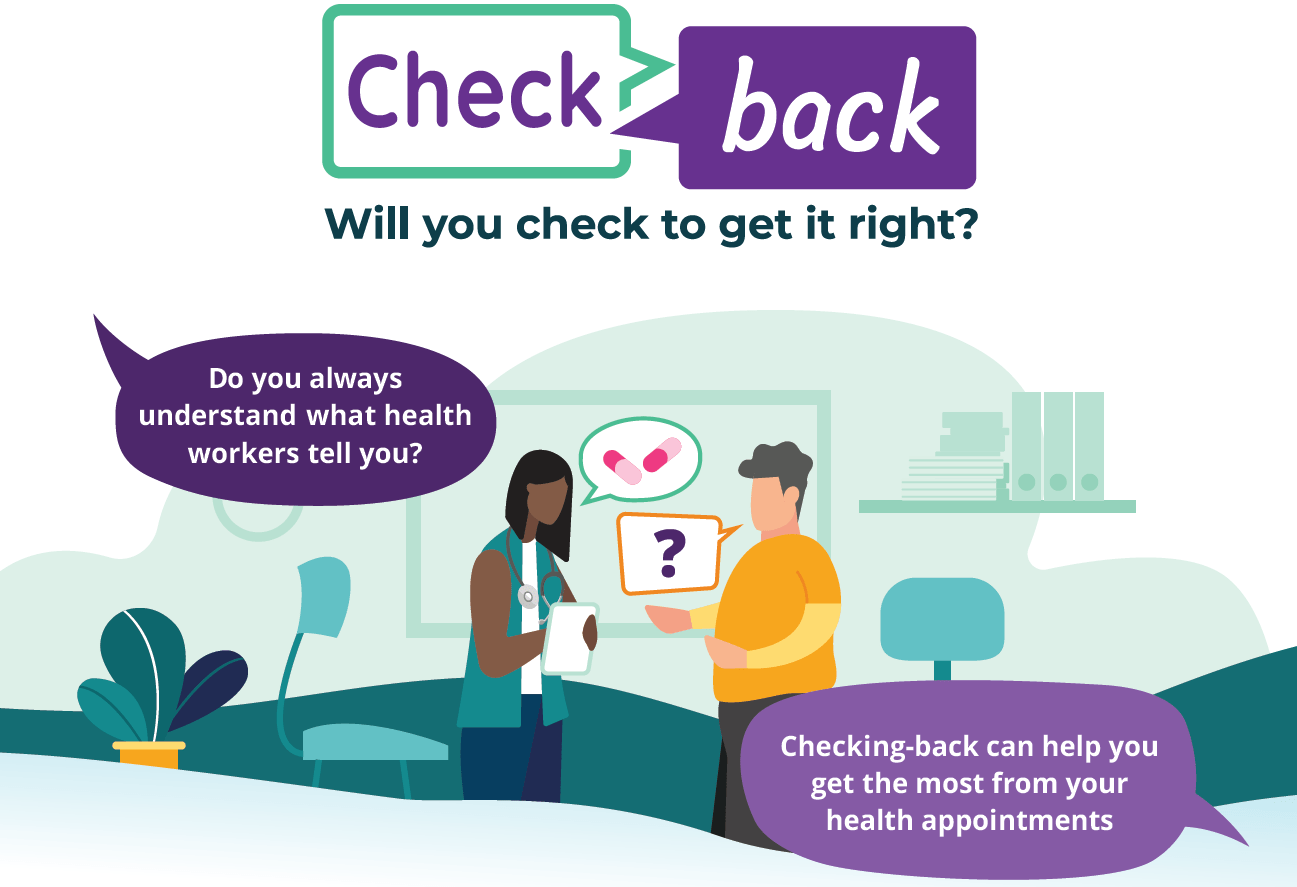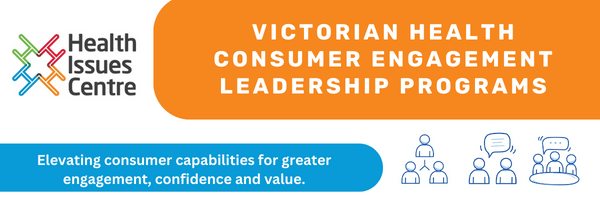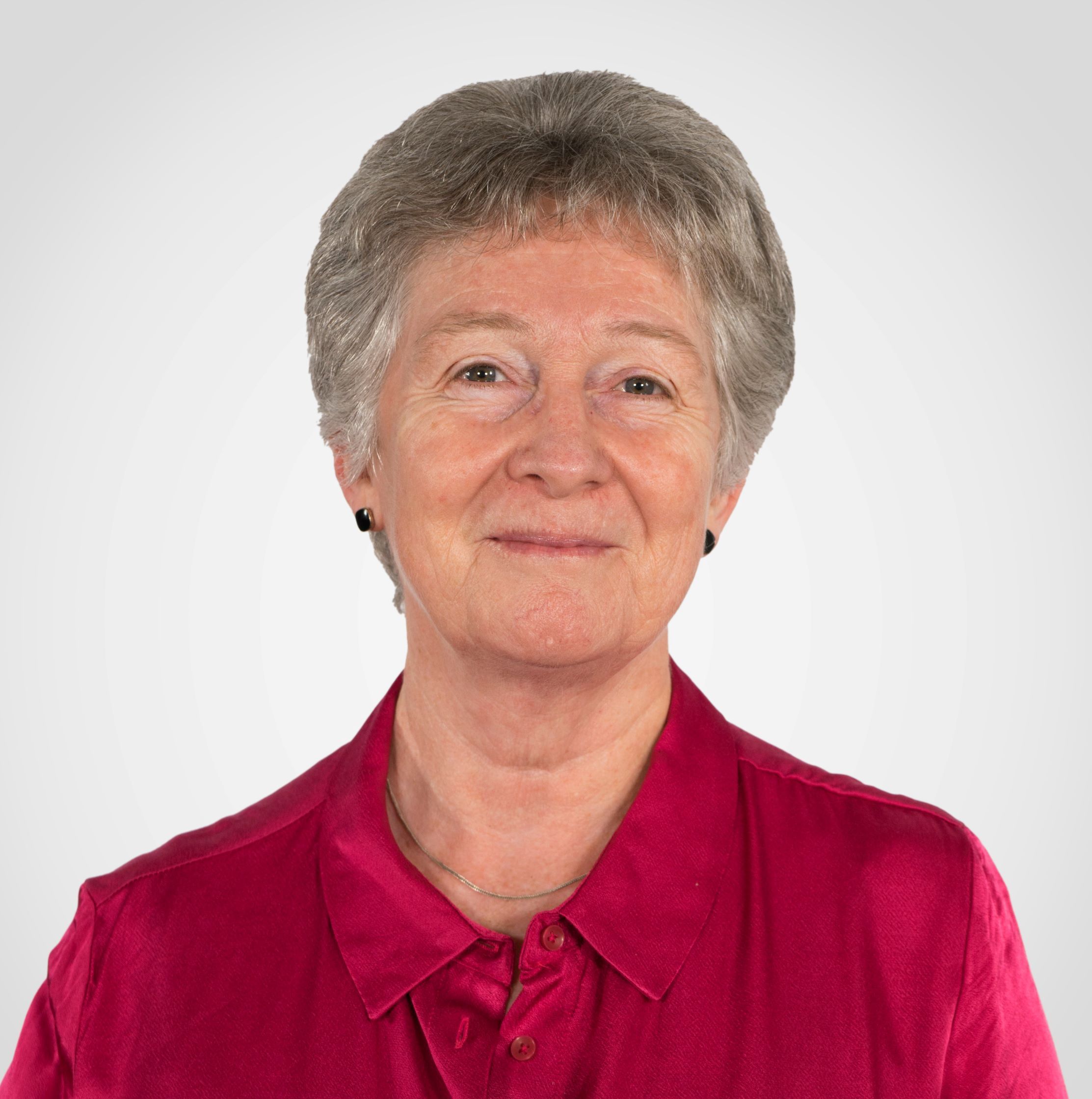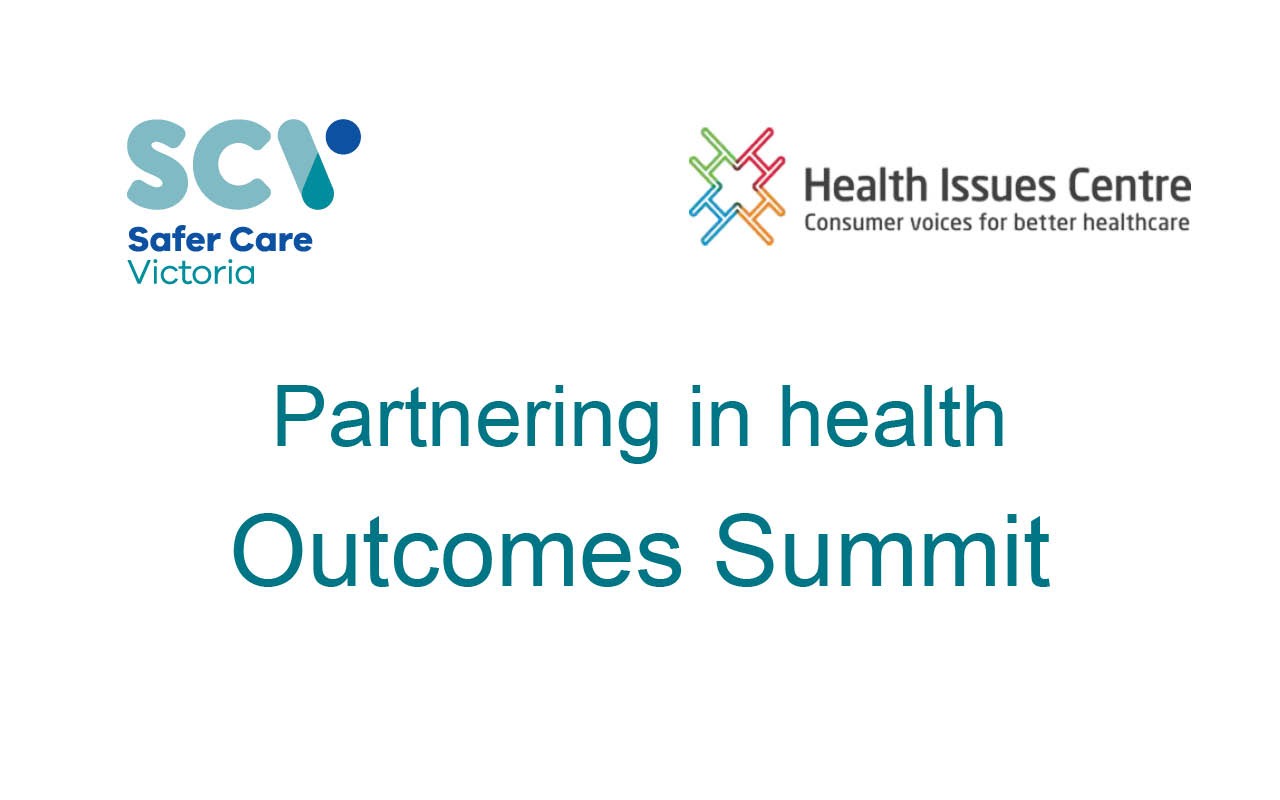We have all been to health care appointments where we left not knowing if we totally understood what the healthcare worker said or what to do next. This can be a major issue because it can have severe consequences on our health outcomes, as well as leaving us feeling like we aren’t true partners in our own health care.
This is why Check-back has been developed. It’s an online learning tool to help all consumers understand what is happening in our health appointments, engage with healthcare workers as partners in our own care, and leave with a clear understanding of what happens next.
It’s never silly to ask
At a recent workshop about Check-back one consumer welcomed the new resource saying:
“I really think that we’ve needed this for a long time. I found it very accessible and it gave me a little bit of confidence because I find it very hard asking doctors to repeat themselves. You feel a bit silly sometimes if you say, “I didn’t quite get that”, so I thought it was really good.”
Another said they wish it had been developed earlier:
My initial response to Check-back was “Why didn’t this exist when I first started seeing doctors for my condition?” I think it’s great that this exists, and it’s long overdue. It also came across as simple enough for most people to understand without feeling condescended. It addressed common barriers with practical advice that most people can operate.”
How does Check-back work?
Check-back is a simple online e-learning module that takes about 15 minutes to complete. It’s self-guided and has a range of videos, audio clips and text that you work through to understand how it works.
There are sections where you select options relating to your needs which will generate personalised documents that you can use during your healthcare appointments.
It’s completely free and anonymous to use, you don’t need to register and you can save your documents to use in the future.
When might you use Check-back?
Check-back is a good option anytime you are going to see a healthcare worker, depending on your needs you can use any of the tools, conversation cues or strategies to make your experience easier.
One of our workshop attendees thought it might be particularly useful when seeing a healthcare worker for the first time and when stressful interactions might happen.
“I’d be more likely to use it with new health professionals and in stressful situations. If I’m seeing my GP who I know really well, he already knows to check with me that I understand everything. However, the first few sessions with an oncologist when you’re reeling from what you’ve just been told, and your mind just goes blank, that’s when Check-back helps.”
What do you imagine to be the impacts of using Check-back?
We asked consumers how they felt Check-back could make a difference in the lives of consumers.
One person shared that:
“I think it could be a positive in that it allows a little bit more of a conversation between you and the doctor, rather than just the doctor dictating the conversation. By you paraphrasing and checking back it can open more of a dialogue and it gives you a sense of control.”
Another said
“I think for a lot of people using Check-back could be quite anxiety inducing at first, because they’ve never done it before, it might be a really unfamiliar concept. But as they ask more and more in real life, in different settings, their confidence could increase and they might feel more to feel like active participants in their healthcare.”
Spreading the word
Do you know someone that you think would benefit from using Check-back in their health journey? Why not share the module with them?
Do you support consumers in enhancing their independence or health literacy skills? Why not go through the module together?
Together we can ensure more consumers feel empowered and confident in managing their health.
How was Check-back developed?
Check-back was developed as a collaboration between Monash University, Safer Care Victoria, Northern Health, Ballarat Health Services and Monash Health.
Check-back is the product of an extensive co-design process which sought to understand how Teach-back, a health-literacy communication approach targeted at health workers, could be initiated by consumers. Consumers involved in the development of Teach-back said they wanted to be more involved in actively communicating with clinicians, suggesting that this would
- Increase their ability to act on health information
- Promote equal partnerships with clinicians
If you would like more information about Check-back or are interested in being involved in helping Check-back reach more people, please contact Alison Beauchamp Senior Research Fellow, School of Rural Health, Monash University at alison.beauchamp@monash.edu.






